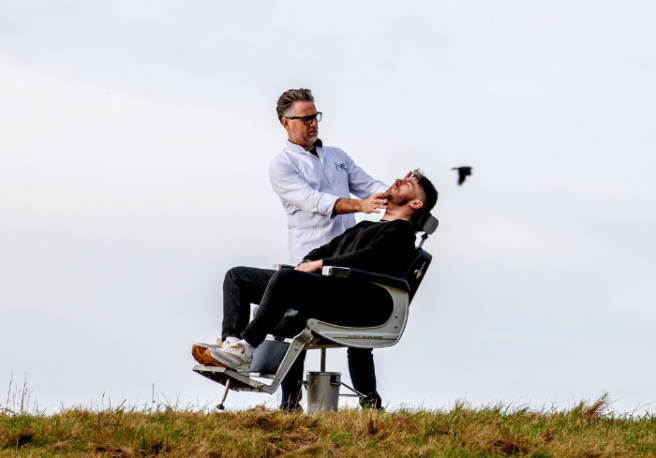
How to recognise the signs of suicide this Blue Monday
Typically speaking, January 17 is known as 'Blue Monday'. Why, because the mid-month date is associated with failed New Year’s resolutions, cold and damp weather with little sunlight — but this single day should not be marked as the cause or side effect of depression.
Depression and suicidal ideation runs much deeper and for many, any day could be considered ‘Blue Monday’ as mental health issues can happen anytime, so it’s important to not view this day lightly and instead, make sure you check in regularly on a loved one who may be struggling.
As the global pandemic has taken over our lives this past two years, calls and texts to suicide prevention charities, like Pieta House, have risen significantly.

This Blue Monday, Pieta have partnered with Sam’s Barbers to drive awareness of Pieta’s ‘SIGNS of suicide’ campaign. The campaign encourages people to ‘swap the small talk for the big talk’ as over half of Pieta’s clients are under 25 years old.
Many young men have great relationships with their barbers and consider this a safe space to open-up and talk freely. Pieta has, therefore, partnered with Sam’s Barbers to help reach young men in a space where are comfortable talking about issues in their own lives.
Most people who talk or think about suicide simply want to stop the pain they feel, so knowing what signs to listen and watch out for is crucial:
Signs to listen for:
-
Engaging in self-harm or risk-taking behaviour
-
Talking or writing about hurting themselves, dying or saying that they want to die
-
Talking about ways to die or having a suicide plan
-
Saying that they are ‘trapped’ or have no options in their life
-
Saying they have no purpose in their life, that they feel hopeless
Signs to watch out for:
-
Giving items away or saying goodbye to people
-
Becoming more inward looking and withdrawing from family and friends
-
Changes in sleep patterns – too much or too little sleep
-
Extreme emotions or dramatic changes in mood
-
Increasing use of drugs or alcohol.
Knowing the signs allows you to then follow three simple steps, A.P.R. (Ask – Persuade – Refer) – and just like CPR, it can save a life.
If someone opens up to you, don’t be afraid to Ask them directly if they are thinking of suicide or want to kill themselves. Talking to them openly and honestly is one of the best things you can do. Even just listening is one of the most powerful tools available.

Once you have asked the question, calmly and gently Persuade them to seek help or to allow you to assist them in getting help. If you cannot persuade them, remember that Pieta’s 24/7 Crisis Helpline is open 24 hours day.
As soon as you can, Refer or guide them to Pieta – if you can, make the call with them or travel with them to the appointment.
Pieta’s professional counsellors specialise in suicide prevention and tackling self-harm. The charity has centres all over Ireland and Pieta’s Freephone Crisis Helpline is open 24/7. All services are provided free of charge and no referral is needed.
For more information and help visit www.pieta.ie





